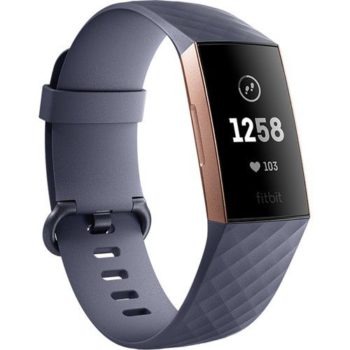When you are trying to lose weight, and those scales reveal you’re stuck at the same weight as the last time you looked, it can be demotivating. It’s also a common reason why dieters give up altogether. But before you throw in the towel, ask yourself what’s plan B? Giving up and reverting back to unhealthy habits should not be an option.
ALSO SEE: How to lose weight with the feel-full-all-day-diet
Here are 6 key questions you should ask yourself if you’re struggling to lose weight, plus tips on how to find solutions.
1. Have you set the right target weight?
Healthy, sustained weight loss means you should aim for a modest kilojoule reduction. Trim 2 000 kilojoules per day, and you’ll lose half a kilo a week; drop 4 000 kilojoules a day and you’ll lose 1kg per week.
Use an online calculator and equation to work out how many kilojoules you need per day, then deduct the necessary amount each day for the weight loss you require. You should be aiming to lose half a kilo a week. Remember, this is a lifestyle change, not a quick fix. Because as much as you might want your excess weight to come off fast, resorting to crash diets, slimming pills or drinks won’t change your body (and unhealthy habits) long-term, and this could cause frustration and the yo-yo effect.
2. Are you being honest about how much you’re eating?
Although losing weight can be tricky (thanks to genetics and pre-existing metabolic issues), for the average person, losing weight really comes down to balancing kilojoules in and kilojoules out. Keep a food diary to spot where you can make changes. It’s important to be 100% accurate.
It’s too easy to forget that biscuit you had with coffee, or the chocolate milk you drink everyday, so record everything that passes your lips and you’ll soon figure out where to cut kilojoules. This won’t necessarily mean cutting back on food intake, it might simply mean swapping some unhealthy foods for nutrient-dense, fibre-rich options that’ll keep you fuller for longer.
ALSO SEE: How to curb those cravings forever!
3. Are you eating enough?
Yes, you can eat too little! When you reduce the amount of energy your body’s getting over time, it tries to conserve energy and reduce fat loss. Eating a very low kilojoule diet can mean your metabolism slows down, which results in weight loss slowing or even stopping. As you start losing weight, you’ll need to carefully reduce your kilojoule intake to ensure weight loss continues. It’s important not to go below 5 000 kilojoules per day.
If you’re unsure about how to maintain your weight loss in a healthy, sustainable way, see a registered dietitian for assistance and a healthy eating plan.
4. Are you eating the right type of foods?
Aim for whole, natural foods and limit processed foods as much as possible. Choose wholewheat or rye bread and rice, sweet potatoes and grains such as millet and quinoa; lean proteins such as white fish, chicken; turkey and eggs; low-fat dairy foods such as low-fat milk, yoghurt and cheese (just read the labels for hidden sugars and preservatives.)
You should also cut down on saturated fats found in animal meat and full-cream dairy products and trans fats in fried foods, biscuits and pastries.
ALSO SEE: Superfoods you have to try
5. Are you active enough?
Increasing your activity level is a great way to boost weight loss, and it doesn’t have to involve hours in the gym. Small daily changes like taking the stairs instead of the lift, or parking further away from the entrance to the shopping mall or your office might not seem like much, but can make a real difference to your weight loss.
Try to do at least 10 000 steps daily. (Invest in a pedometer or fitness tracker to help you log your progress and achieve those fitness goals. We love the new FitBit Charge 3, R2 989, because it has an easy touch-screen display and tracks everything from your calories to your steps, your heart rate and sleep patterns.

6. Have you reached a natural plateau?
Have you been losing weight for a while? Maybe two or three months? If so, you may have just reached a natural plateau, which is common after a significant period of continual weight loss. It’s usually temporary, but can be a risky time if it affects your motivation. Expect that it could happen, but know it’ll pass and you’ll start to lose weight again – if you need to lose more!
DISCLAIMER: Before starting any diet, you should speak to your doctor. You must not rely on the information on this website/newsletter as an alternative to medical advice from your doctor or other professional healthcare provider.

